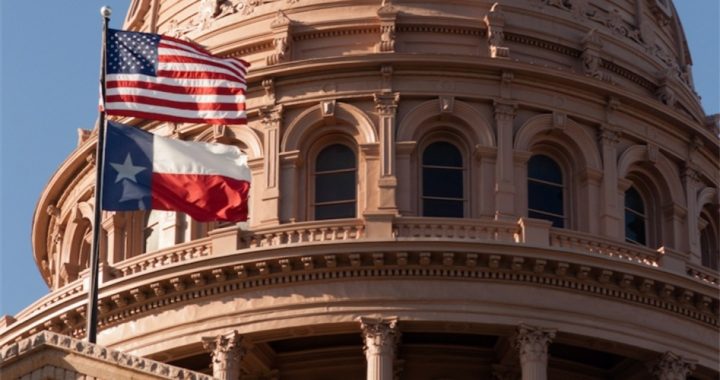
The secession movement in Texas just got an unexpected infusion of new blood.
Here’s the story as reported by the Washington Post:
Earlier this month, a secession bill won overwhelming support from the mock legislature in Texas Boys State, the American Legion’s summer program where youth leaders create and run their own government, as the Wise County Messenger reported Saturday. The vote, held June 15, marked the first time in the nearly 80 years since the program’s inception in Texas that both chambers of the Texas Boys State legislature voted in favor of seceding from the Union.
For those unfamiliar with Boys State, here’s a little background provided by the Texas Boys State website:
American Legion Boys State is among the most respected and selective educational programs of government instruction for high school students. It is a participatory program where each student becomes a part of the operation of his local, county, and state government.
Boys State has been a program of The American Legion since 1935, when it organized to counter the fascist-inspired Young Pioneer Camps. The program was the idea of two Illinois Legionnaires, Hayes Kennedy and Harold Card, who organized the first Boys State at the Illinois State Fairgrounds in Springfield.
The American Legion Auxiliary sponsors a similar program for young women called Girls State.
At American Legion Boys State, participants are exposed to the rights and privileges, the duties and the responsibilities, of a franchised citizen. The training is objective and practical, with city, county, and state governments operated by the students elected to the various offices.
According to the daily blog kept by the Texas Boys State, on Thursday, June 15 boys participating in the program were divided up into what could be described as a model state legislature, a House and a Senate, and “members reported to their respective chambers and began debating and passing laws.”
The official Boys State blog then reports on one bill that “in particular was highly favored by both chambers:” this was the bill for secession.
After debating the merits of the proposed separation from the American union, the boys “passed the bill and created a constitution and a declaration of independence.” The organization reports that “this was the first time in Texas Boys State history that the government body decided to secede from the United States.”
Not that such sentiment is so rare or radical in the Lone Star State. For decades there have been various attempts to organize citizens and lawmakers who support secession and to pass an appropriate state law that would accomplish that end.
Obviously, they have all been unsuccessful.
All the real ones, that is. Texas Boys State now managed to pass a symbolic secession act, as related above, going so far as to write their own constitution and declaration of independence from the United States.
Although the boys of the Boys State House and Senate “were cheering and celebrating because they have now made history by becoming a nation,” such a drastic act may not now be necessary.
Constitutionally speaking, secession is, of course, an allowable response to federal overreaching. If states decided that the federal authority has become destructive of the very ends it was created to protect, then it is the right of that state or states to — as someone once said of another formerly free government — “dissolve the political bands which have connected them with another, and to assume among the powers of the earth, the separate and equal station to which the Laws of Nature and of Nature’s God entitle them….”
There is, however, a simpler, less drastic remedy: nullification.
Simply stated, nullification is a constitutional principle recognizing the vestigial authority of states to invalidate any federal measure that exceeds the enumerated powers of the Constitution. Nullification is founded on the fact that the sovereign states formed the union, and as creators of the compact, they hold ultimate authority as to the limits of the power of the central government to enact laws that are applicable to states and their citizens.
As the great Algernon Sidney wrote, “He who institutes, may also abrogate.”
Another benefit to states refusing to enforce unconstitutional acts of the federal government is that, if done right, nullification is a surgical, sparing way to remove malignant tumors of tyranny, whereas secession would be a chainsaw brutally butchering healthy and diseased tissue indiscriminately.
While the young men of Texas Boys State are to be commended for their courage and the devotion to the principles put forth in the Declaration of Independence, they would be well advised to assert their increasing influence on their actual state House and Senate and compel their representatives to nullify every act of the federal government that exceeds its constitutionally enumerated authority.
Such an act would be just as historical and praiseworthy.
Photo of Texas State Capitol: Thinkstock



